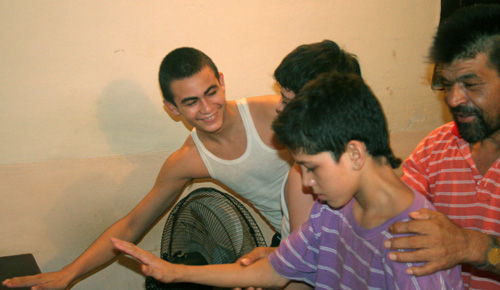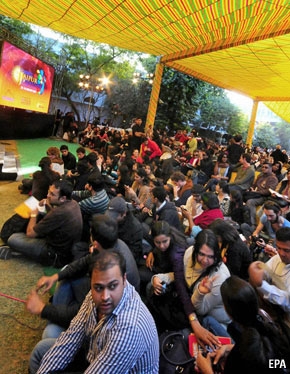A young Saudi journalist is facing calls for his execution after tweeting remarks about the Prophet Mohammed, and the kingdom’s top clerics are demanding his trial after denouncing him as an “apostate.”
On the occasion of the Muslim prophet’s birthday last week, 23-year-old Hamza Kashgari tweeted: “I have loved things about you and I have hated things about you and there is a lot I don’t understand about you.”
“I will not pray for you,” he added.
The controversial tweet sparked a frenzy of responses — some 30,000, according to an online service that tracks tweets in the Arab world.
In one response, Abdullah, a lawyer, said that since Kashgari was “an adult… we should accept nothing but implementing the ruling according to Islamic law” or sharia.
Insulting the prophet is considered blasphemous in Islam, and is a crime punishable by death.
Kashgari quickly apologised for his remarks, but the calls for his execution only multiplied.
A Facebook page entitled “The Saudi people demand Hamza Kashgari’s execution” already has nearly 10,000 members.
A recent posting thanks the page’s members for their support and calls for more recruits.
“Our page has almost 10,000 members… but we need you to work harder. The prophet deserves more respect,” said one post.
A committee of top clerics in charge of issuing religious edicts in the kingdom issued a statement calling Kashgari “an apostate” and an “infidel,” and demanded that he be tried in an Islamic court.
The statement, released late on Wednesday, said: “Muslim scholars everywhere have agreed that those who insult Allah and his prophet or the (Muslim holy book) Koran or anything in religion are infidels and apostates.”
It is therefore “the duty of our leaders to judge based on sharia law,” which stipulates that an apostate must be sentenced to death, the statement added.
Not all the remarks posted on Kashgari were so harsh.
“Brothers, the man has repented. If the prophet himself was here he would have forgiven him and ended this,” said tweeter Saleh al-Ghamdi.
The incident has shined a spotlight on online social networks.
Sites such as Twitter and Facebook represent a virtual world where Saudis are free to share opinions, ideas and develop relationships, a fact that recently prompted the country’s top cleric to denounce them as “a great danger.”
Grand Mufti Sheikh Abdul Aziz bin Abdullah al-Sheikh said Twitter was “a great danger not suitable for Muslims… it is a platform for spreading lies and making accusations.”





